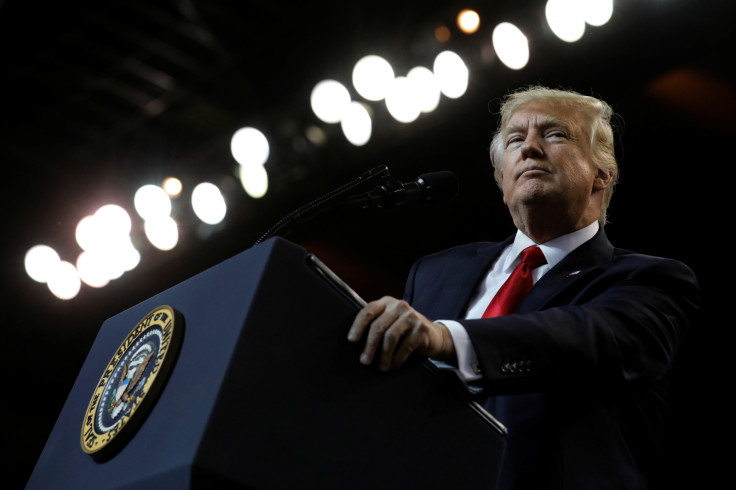President Trump signs bill scrapping Obama-era internet privacy rules
The bill drew fierce criticism from Democrats as well as data privacy groups and consumer advocates.

President Donald Trump signed a bill on Monday (3 April) officially repealing internet privacy rules passed by the Federal Communications Commission (FCC) during the Obama administration last year. The FCC regulations would have required internet service providers (ISPs) such as AT&T, Verizon and Comcast to ask customers' permission before collecting, using or selling their sensitive personal data such as browsing history, geolocation, financial and health information and children's information for advertising purposes.
While proponents of the FCC rules said it gave customers greater control over what ISPs can do with their data, Republican opponents argued it stifled innovation and gave internet giants such as Facebook, Google and Twitter an unfair advantage to collect more data to create targeted advertising. Adopted in October 2016 by the FCC, the regulations had not yet taken effect.
"President Trump and Congress have appropriately invalidated one part of the Obama-era plan for regulating the Internet," newly appointed FCC chairman Ajit Pai said in a statement. "Those flawed privacy rules, which never went into effect, were designed to benefit one group of favoured companies, not online consumers."
Pai said the FCC will work with the Federal Trade Commission towards restoring the "FTC's authority to police internet service providers' privacy practices".
The bill used the Congressional Review Act (CRA) to prevent the FCC regulations from going into effect as well as prevent the agency from implementing similar rules in the future as well. The bill was passed by the House and Senate last week as Republicans voted to nix the "heavy-handed" regulations.
While the bill drew fierce criticism from Democrats as well as data privacy groups and consumer advocates, companies praised it.
"We welcome President Trump's action today affirming Congress' decision to hit the reset button by stopping rules that would have created a confusing and conflicting consumer privacy framework," CEO of USTelecom Jonathan Spalter said in a statement. "Consumers deserve and expect one consistent set of online privacy protections and this action helps clear the way for a more uniform approach across the entire internet ecosystem.
"FCC Chairman Ajit Pai's commitment to modelling the Federal Trade Commission's well-tested approach is a meaningful step toward a consistent set of privacy protections that are pro-consumer and pro-innovation."
In a letter on 30 March, 46 Senate Democrats urged Trump to veto the resolution arguing that most Americans "believe that their private information should be just that - private - and not for sale without their knowledge".
"This legislation will seriously undermine the privacy protections of the overwhelming majority of Americans," the senators said. "Reversing these landmark privacy protections would be the antithesis of a pro-consumer administration. Consumers deserve the right to make their own decisions about access, use, and sale of their personal, sensitive internet data by their broadband provider."
Last week, three of the largest US internet providers - Comcast, AT&T and Verizon - said they would not sell customers' individual internet browsing information despite Congress' reversal of the internet privacy rules.
© Copyright IBTimes 2025. All rights reserved.





















